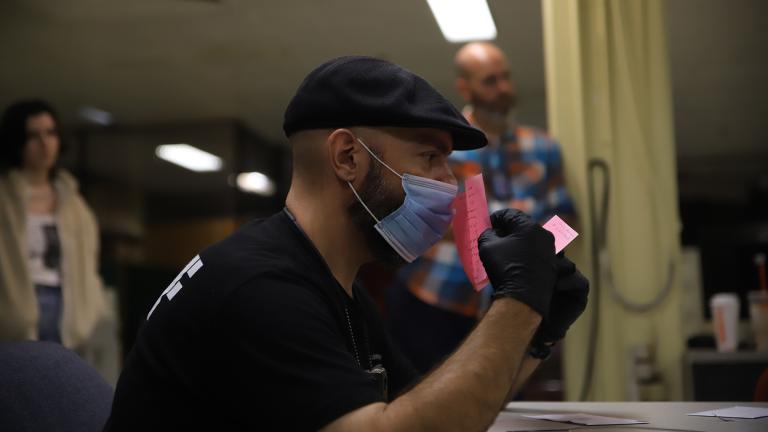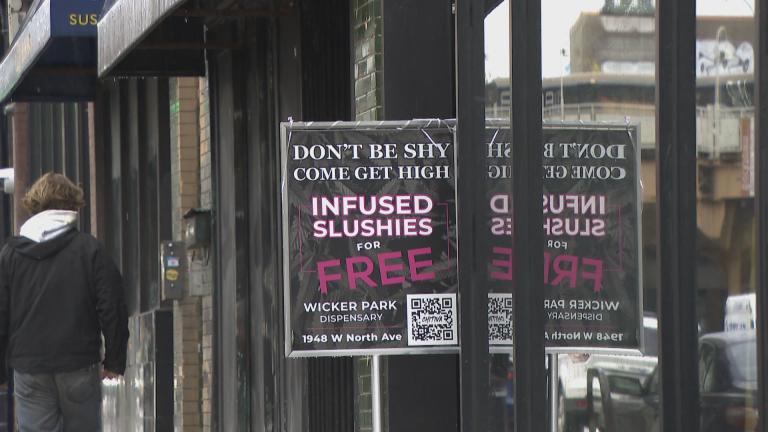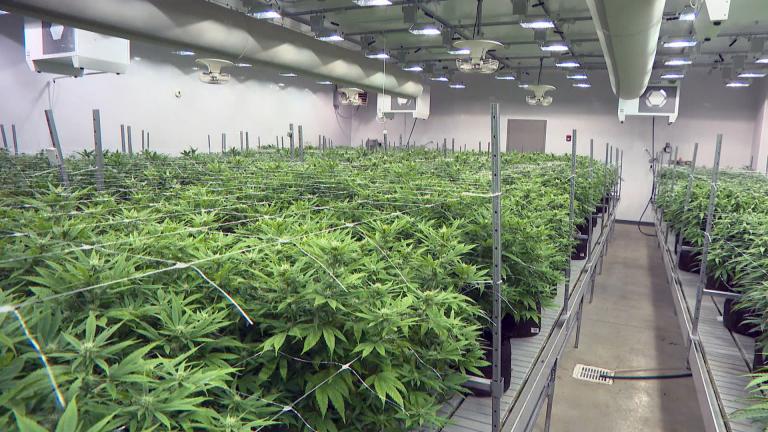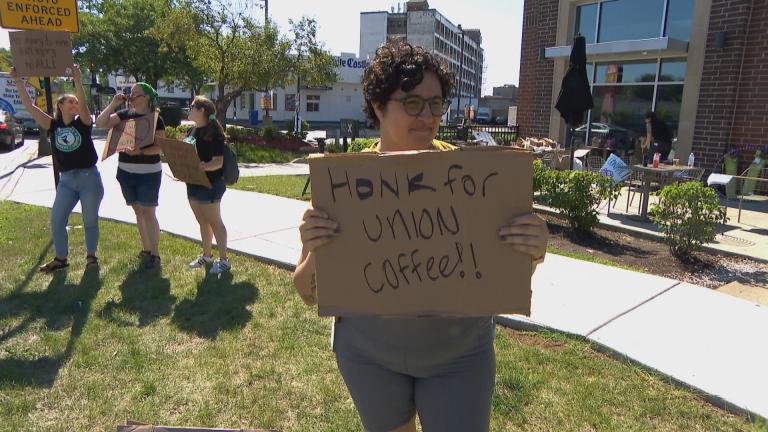 (Photo by Add Weed / Unsplash)
(Photo by Add Weed / Unsplash)
Plans to expand a medical marijuana dispensary in Jefferson Park are on hold after members of the City Council’s Black Caucus blocked them from advancing over concerns that none of its owners are Black or Latino.
Columbia Care wants to expand its operation at 4758 N. Milwaukee Ave. into a neighboring storefront on Chicago’s Far Northwest Side. The dispensary has been open since August 2016, when it began selling medical marijuana. It began selling recreational marijuana in January 2020, after state lawmakers legalized the drug.
But the dispensary’s expansion is now mired in legislative limbo, with members of the City Council’s Black Caucus prepared to vote against the zoning change the project needs to move forward — even though the expansion has the support of Jefferson Park Ald. Jim Gardiner (45th Ward).
The project won the approval of the City Council’s Zoning and Building Standards in February, but Chair Ald. Tom Tunney (44th Ward) has not yet called the measure for a final vote by the City Council.
Tunney’s move to defer a vote on the project for the third time at Wednesday’s City Council meeting brought an unusually pointed rebuke from Gardiner, who asked his colleagues to overturn Tunney’s decision with a roll call vote. Gardiner lost, 26-24, in perhaps the closest vote of the City Council in modern Chicago history.
After agreeing to answer questions about the Columbia Care expansion from WTTW News via email Friday morning, Gardiner did not respond.
In addition, a representative of Columbia Care, which also operates a dispensary in Villa Park, declined to comment on the record to WTTW News.
However, former Ald. Joe Moore (49th Ward), who now works as a lobbyist and represents Columbia Care, provided WTTW News with a letter Gardiner sent to the members Black Caucus asking them to support the planned expansion.
The expansion will generate an additional $100,000 in sales tax revenue for the city and create eight new jobs and should not be delayed, Gardiner wrote.
While Tunney said after the City Council meeting he was hopeful that a resolution could be reached in the coming weeks, paving the way for a vote at the City Council meeting May 26, Black Caucus Chair Jason Ervin (28th Ward) said the 20 members of the caucus were prepared to reject the expansion of the dispensary because none of the owners of Columbia Care are Black or Latino. Without the support of the caucus, the expansion is likely doomed.
That rejection defies the City Council’s tradition of aldermanic prerogative, the largely unwritten, decades-old practice giving aldermen a veto over ward issues — like the expansion of a business.
In his letter to the Black Caucus, Gardiner asks members to respect his authority as alderman to have the final say over what happens in the 45th Ward.
Columbia Care is a publicly held corporation and has demonstrated “a strong commitment to social equity,” by helping Black- and Latino-owned cannabis firms and hiring a diverse staff, Gardiner wrote.
“Columbia Care has demonstrated that it is a good corporate citizen and is fully committed to the goals of creating real opportunities in the cannabis industry for social equity applicants, including those from the African-American community,” Gardiner wrote, asking for caucus members’ support.
Members of the City Council’s Black Caucus have been deeply frustrated since the state law legalizing recreational marijuana took effect more than two years ago. Led by Ervin, the caucus unsuccessfully attempted to delay the sale of legal pot in Chicago because none of the firms licensed to sell the drug in Chicago were owned by Black or Latino Chicagoans. That has not changed in 27 months.
Gov. J.B. Pritzker and lawmakers vowed that legalizing marijuana would primarily benefit Illinois residents harmed by the war on drugs. Since Black and Latino residents were far more likely to be arrested and convicted of drug-related offenses, often suffering lifelong consequences, they should profit from marijuana’s legalization, the governor argued.
But the effort to award 75 licenses to sell marijuana to “social equity” applicants who suffered from the war on drugs stalled amid the pandemic and is now the subject of several lawsuits that challenge the law’s fairness. Lawmakers are working to resolve the issue, but a solution remains elusive.
That leaves members of the Black Caucus with limited options to register their frustration with the current state of the sale of marijuana laws in Chicago and Illinois. The caucus’s decision to block Columbia Care’s expansion plans indicates members have decided to exercise their power to stop licensed dispensaries that need city permission from expanding or moving their lucrative operations.
Sales of recreational marijuana in Illinois reached $669 million in 2020, beating expectations and defying concerns that the COVID-19 pandemic would reduce demand, according to state officials.
Contact Heather Cherone: @HeatherCherone | (773) 569-1863 | [email protected]








